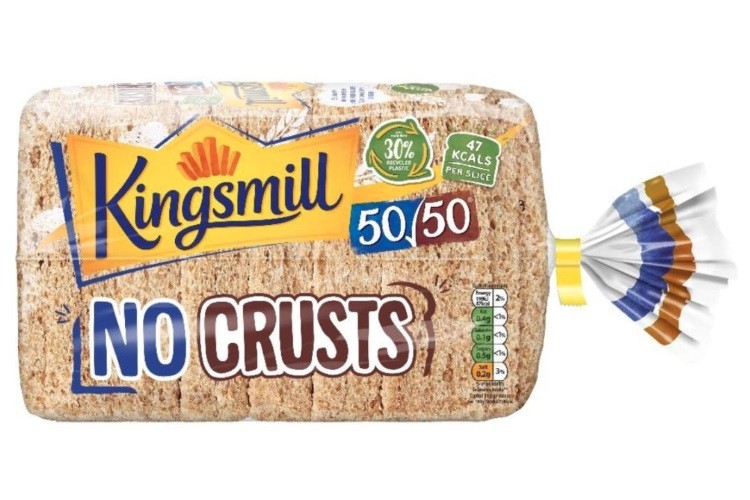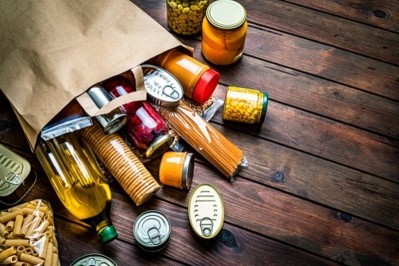Kingsmill to debut market-changing bread bags made from post-consumer waste

The bags – made by flexible packaging specialist St. Johns Packaging – features a certified circular polyethylene (PE) resin grade, which incorporates 30% content of recycled feedstock from post-consumer waste. The PE resin is made by Saudi Arabian chemical manufacturer SABIC.
SABIC employs advanced recycling to convert used and mixed plastic into pyrolysis oil, which is then applied to produce new polymers with the same purity and quality as traditional virgin plastics.
The company said its circular materials are aligned to the mass balance accounting standard set by the International Sustainability & Carbon Certification (ISCC) PLUS programme. The approach follows a set of predefined rules to track the amount and sustainability characteristics of circular and bio-based material in the supply chain.
Getting the bags to market has taken less than a year. Allied Bakeries, St. Johns Packaging and SABIC began development in November 2020 and conducted a trial phase at the St. Johns Packaging production site in China in May 2021. Kingsmill is introducing the novel bags for its No Crust 50/50 loaf in UK stores this month.
“For such solutions to work in the long term, the partners in the material value chain must closely collaborate,” said Abdullah Al-Otaibi, general manager, ETP & Market Solutions at SABIC.
“With our Trucircle programme, we are pushing for innovative business models to transform our industry from a linear to a circular one and help prevent the valuable material of end-of-life plastic applications from being wasted. Within a relatively short time, this remarkable joint project has shown what can be achieved to make this vision come true if all players work together to maximise post-consumer plastic recycling and sustainability.”
Addressing the plastic challenge
Added Chris Craig, joint MD at Allied Bakeries, “At Kingsmill, we’re fully committed to finding ways to address the plastic challenge that all food producers are facing.
“Of course, this is just one of our products, but it’s an important step that shows how food manufacturers and packaging suppliers are working together to bring about much needed change.
“We really need more soft plastics to be recycled so that there is more material available for projects like this. We want everyone in the UK to know that bread bags can and should be recycled by taking them to larger stores, but what we really need is for the UK government to bring forward the date when soft plastics like bread bags can be recycled as part of home curbside collections.”
Marc Leclair, president of St. Johns Packaging, said the incorporation of recycled content is a key focus for the company, which is committed to developing sustainable and economically viable packaging solutions for the baking industry, while reducing food and plastic waste.
“By supporting the circular economy, giving value to plastics and promoting its use into other packaging products, we hope to contribute efforts to tackle the enormous challenge of improving recycling rates and finding solutions to the plastic waste issue,” said Leclair.
“We welcome the advanced recycling route offered by SABIC as an opportunity to make a meaningful contribution to the circularity of plastics. In collaboration with strong global partners, this breakthrough project is demonstrating the feasibility of reusing plastic waste in safe food-grade packaging rather than losing its value to landfill or incineration.”












